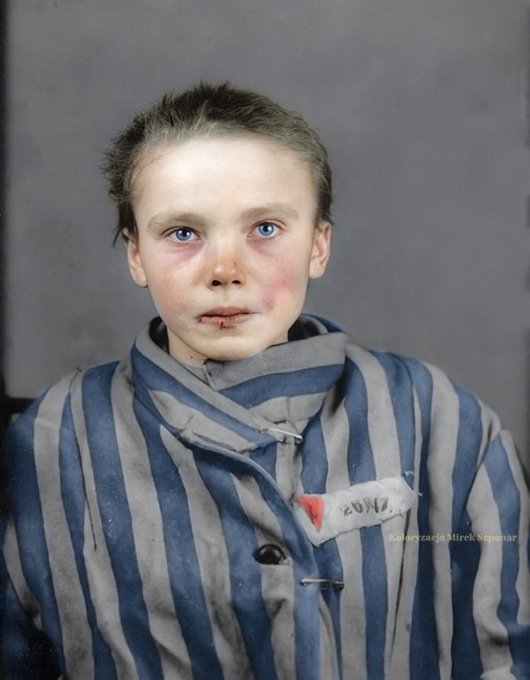This startling photo of a young girl in a Nazi concentration camp stopped me cold. I was scrolling through my Twitter feed and my eyes were fixed on her gaze.

The original picture has been digitally colorized and enhanced. That may be part of why I stopped scrolling. She died 80 years ago this year.
What is left to be said about the holocaust? It demonstrates the depths to which humanity can sink. I’m a realist. If it happened before it can happen again. Sometimes by watching the news it feels like we are heading in this direction again. Some human lives seem to have no value.
What can be done, you might ask? Start with the human life right in front of you. In every encounter with another person we have a choice in what to think and how to behave.